1. Don’t tap your retirement funds. One frequent mistake made by people in financial trouble is to take money out of a 401k plan or IRA in order to pay things like credit card debt. Retirement funds like 401Ks and IRAs are protected from both creditors and bankruptcy trustees. Creditors can’t take the money, and there is a reason for that: you NEED it. The only way creditors can reach that money is if you voluntarily take it out and give it to them. There might be situations in which using retirement funds to pay debt makes sense, but if taking money out of retirement doesn’t solve the whole problem, (like paying off ALL your credit card debt AND the taxes that you are going to incur for early withdrawal) then it’s probably a dumb thing to do. Most of the time my clients have taken money out of retirement and used it to make minimum payments. As a result, they still owe more money than they can pay to creditors, and now they owe taxes, too.
2. Don’t try to pay those loans from family members first. One of the things many people think of doing when they get into financial hot water is to try and pay off family members before filing bankruptcy, or before a creditor gets a judgment. While the impulse to try and pay off those who are close to you is understandable, it may be a very bad idea, for several reasons. It may cost the family member you are trying to protect a lawsuit, depending on when you do it and what happens later.
It may eliminate bankruptcy as an option to help you, or make your bankruptcy more expensive. And it may not work- many such payments can be unwound, whether you plan to file bankruptcy or not. A better option is to consult with a lawyer before making any such payments, and find out what kind of problems you may be creating yourself. If you’ve already done it, consult with a bankruptcy lawyer anyway. Many times I can offer clients with family obligations better options, and accomplish the same goal while reducing their risk. One further note –I’m talking about loans from family members, not child support or alimony obligations. Pay the things the Bankruptcy Code calls “domestic support obligations” or some judge may throw you in the pokey.
3. Don’t take money out of retirement to pay off family members. A combination of the prior two bad ideas is a REALLY bad idea. Taking money out of 401k or IRA to pay back a family loan is the granddaddy of bad ideas when you are in financial distress. Not only do you incur taxes and penalties, but you have taken money that is protected by creditors (in a 401k or IRA_ and made it free game for those creditors, and for a bankruptcy trustee. Absolutely, positively do not do this without consulting a lawyer.
4. Another really bad idea is to transfer assets away when you run into financial trouble. Clients frequently tell me that they have some equity in an asset, and then ask me if they should transfer it to someone else. The answer to that question is almost always “no.” In fact, I can’t think of any exceptions to that rule, but I will leave it at “almost always” in case there is an exception I’ve never run into. Unfortunately, many of the people I talk to have already done that. I don’t call them “clients” because I may not be able to help them, so they don’t become clients. The transfer of an asset to keep it away from creditors is called a fraudulent conveyance, and it can have very serious consequences. It can restrict or eliminate the kind of bankruptcy relief you are entitled to, it can result in more law suits, and it can generally be unwound. And often the asset that was transferred away is one that is exempt, that creditors couldn’t reach anyway, that is, until you transfer it away. That’s right, once you give it away, you are no longer entitled to claim it as exempt property. You can really make a mess for yourself with this one, so don’t do it.
5. Don’t exhaust your savings to pay unsecured debt when your income drops. Note that I used the word “exhaust.” Most financial gurus will tell you that you need an amount in savings equal to your monthly bills for several months (two to six, depending on the “expert). I’m not talking about a situation where you have enough savings to carry you for six months, and you are going to be out of work for surgery for two months. I’m talking about a situation where you’ve been laid off, and you’re facing an indefinite period without sufficient income to live on. Most of us would cross our fingers and try to keep paying everything for a month or two. But don’t continue to try to pay unsecured debt at the expense of paying the folks who can really hurt you, like your mortgage company. If you aren’t sure about which is which, and how you should prioritize the use of your savings, consult with an attorney, or with a financial counselor. How you should set your priorities, and what options you have depend on your individual situation, including your age, your assets, and how much you owe. If you aren’t sure, look for expert advice that is tailored just for you.
6. Be careful on trying to pay mortgage payments ahead. Sometimes what looks like smart financial planning turns out to be a problem. One example is an attempt to pay your mortgage payments ahead. Let’s say you know you are going to be on short term disability for a while. You take your savings and use it to pay your mortgage payments (or even car payments) ahead, for the time you won’t be drawing a regular paycheck. You might well think that is sound financial planning. The problem with your plan is that the mortgage company may not apply the money as you intended. Many banks and mortgage companies will apply any excess over your current payment (and any escrow shortages) to principal. So, if you send them three payments this month, they will apply the money to any the current month first, and then to principal. Next month they will still look for you to make a payment. The problem is that once they have applied the funds in that way, it is almost impossible to get them to reverse it. A better idea: leave that money in savings until it’s time to make the payment. If you are worried that you’ll fritter the money away, put it in a wholly separate savings account. Or write the checks out, but wait to send them until the payment is due. Even if your mortgage company seems willing to apply the payments as you intend, I would be cautious. Many of these practices are driven by regulation or language in the mortgage documents, and the lender may not be flexible at all. (By the way, it’s worth noting that some lenders, including student loan lenders, use the opposite tactic, called “paid ahead status,” to get you, too.)
7. Don’t borrow against your home to pay unsecured debt. Don’t take unsecured debt (like credit cards, medical bills, personal loans and payday lenders and turn it into a mortgage. It is far easier to deal with unsecured debt, and protect your assets, than it is to pay off a mortgage on your home. Not to mention the fact that it could cause you to lose your home.
8. Don’t wait until the wolves are at the door before seeking help. This one is easier said than done, and often it is the folks who are trying the hardest who are the worst offenders. I recently met with a couple who told me that they had been struggling with the decision to seek help for three years. During that time, they lost their home and two investment properties to foreclosure, closed their business, and practically everything. Ironically, they knew more than most about what they could do, and should do, but were so engaged in the struggle that they ignored the advice they would have given anyone else. I don’t know any bankruptcy lawyer who doesn’t see some version of this story on a regular basis. Seeking help early can be invaluable, can help you avoid the worst mistakes, can help you preserve assets, and may help you avoid bankruptcy–exactly the things you are trying to do on your own. Seeking help is not an admission of defeat, it’s a way to fight better.
9. Don’t exhaust your cash. This sounds a lot like paragraph 5, but my focus here is a little different. One of the most persistent urban myths about bankruptcy is that you aren’t allowed to have bank accounts, or any cash. It isn’t true–you can keep your bank accounts and you not only can keep some cash, you are going to need it. Filing bankruptcy will immediately, and probably for some time, put you on a cash basis, and you are going to need a little bit of a nest egg to cover both ordinary expenses and emergencies. An experienced bankruptcy lawyer can tell you how much it is safe to keep, and what steps you need to take to protect your cash from creditors, whether you are in bankruptcy or not. Laws can vary from state to state, so you need to ask someone who is familiar with your jurisdiction.
10. Don’t ignore the problem. It is tempting to just stick your head in the sand. It is stressful and unpleasant to deal with financial problems. I occasionally have a client who comes in carrying a grocery bag full of unopened bills and notices. I can identify with the impulse to stick them somewhere unopened. But it can cost you, especially if you are missing critical notices of legal action taken against you. You can lose your rights, and sometimes your property, by not paying adequate attention to what your creditors are trying to do. Read your mail–that is crucial. You can talk to your creditors or not–I usually recommend NOT talking to the ones who call you, but if you want to talk to them, you place the call to them. You tend to get someone higher up the totem pole that way, who is actually in a position to help you. File your tax returns, even if you can’t pay the taxes–there is nothing more crucial than this. Besides the legality of failing to file tax returns, you need to know how much you owe in taxes. I’ve had more than one client over the years who didn’t file a return because he didn’t think he had the money to pay, only to find out years later that the actual tax was fairly minimal. Of course, the penalties and interest due for failure to file is NOT minimal. Even if you are what lawyers call judgment-proof, you still need to track follow what your creditors are doing, to make sure they don’t do something they aren’t supposed to. So don’t be an ostrich, man up, and go see someone about those financial problems. I’d be willing to bet you’ll feel better afterward.


